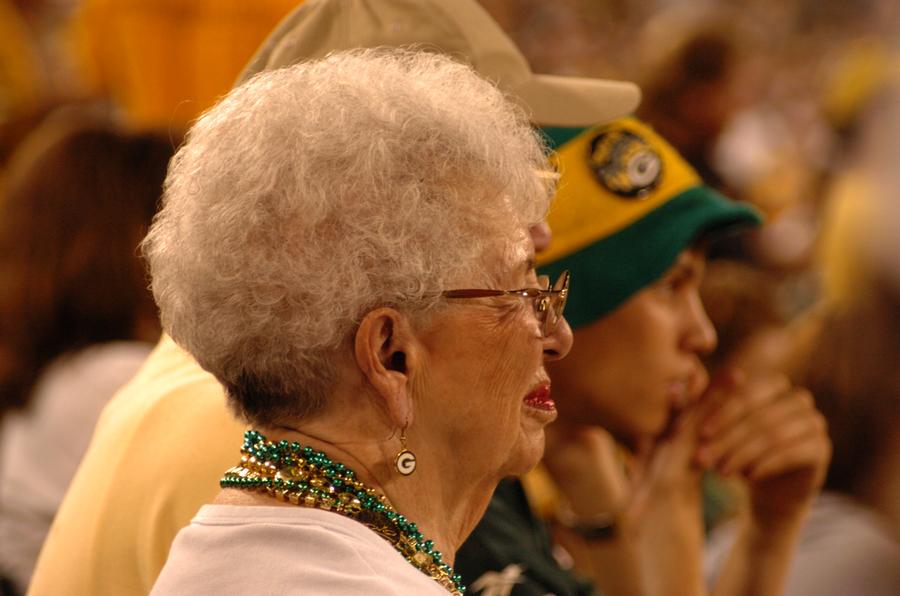It was the day before New Year’s Eve, and New Yorkers were leaving the city in droves. Not to escape Times Square celebrations, but to watch the N.F.L. championship game.
Roughly 45 years ago, on Dec. 30, 1962, the Yankee Stadium championship rematch between the Giants and the Green Bay Packers was blacked out on local television sets. Enterprising fans fled to southern New Jersey, searching for the broadcast from Philadelphia, or to the north to receive the signal from Hartford.
Those who succeeded watched a pivotal piece of American sports history. The N.F.L. might have first grabbed the public’s attention in the late 1950s, but it needed celebrity, personality and recurring characters for its Sunday gridiron theater.
The 1961 and 1962 N.F.L. championship games, each ending with a Green Bay victory over the Giants, had it all. Born on those afternoons was pro football’s first televised dynasty with Vince Lombardi as king, Paul Hornung as prince and Bart Starr as trusted knight. And although the Giants were twice defeated, by 37-0 in 1961 and by 16-7 the next year, they were the franchise that brought an eminence to the clashes. The Giants were established N.F.L. royalty, having played for the championship three times in the previous five years. They would play for it again in 1963.
Category: Sports
Surfing at Mavericks

Thousands of big-wave surfing fans straggled onto a small beach north of Half Moon Bay on Saturday morning to watch – or try to watch – the greatest surfers in the world battle the worst that the Pacific Ocean can throw at them.
Watching the fabled Maverick’s contest from the beach seemed nearly as challenging as riding the waves themselves, as close-in breakers blocked the view of the waves that the competitors were riding about a half-mile offshore.
But the fans, many of them tugging on beers as they scrambled for position before sunrise, didn’t care.
The Green Bay Packer’s “Reclusive” Ted Thompson
In a year when New England Patriots executives are being hailed as football geniuses for engineering an undefeated season, Ted Thompson, the reclusive general manager of the Green Bay Packers, has achieved something equally remarkable.
Before this season, fans were calling for Mr. Thompson’s head. While the Packers had won just 12 of their last 32 games, he did not seem to care. No matter how loudly the fans complained, Mr. Thompson, who avoids publicity and rarely explains himself, continued sending away popular veterans and replacing them with untested college players, some of whom weren’t highly regarded by other NFL teams.
This year, led by a core of players that helped make Mr. Thompson a pariah, the Packers won 13 games and made the playoffs. What’s more, the players he’s brought into the league during his career are having an exceptional year — as the playoffs resume Saturday, nearly 10% of the active players on the remaining eight teams were signed out of college by Mr. Thompson.
Pre Steroid Era Brewer Logo?
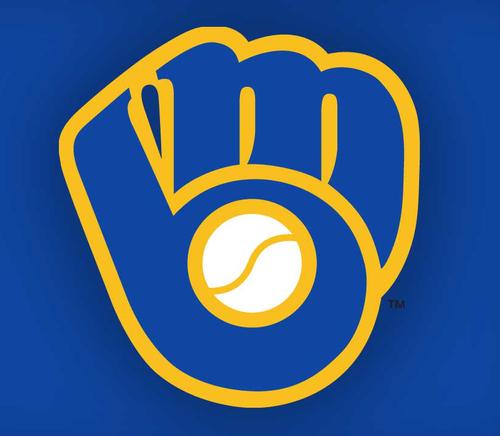
I saw a young man wearing a classic Brewers baseball cap earlier today. It occurred to me that this is the “pre steriod era” logo.
Pomp, Circumstance & Hockey: Wisconsin Badgers vs. North Dakota Fighting Sioux
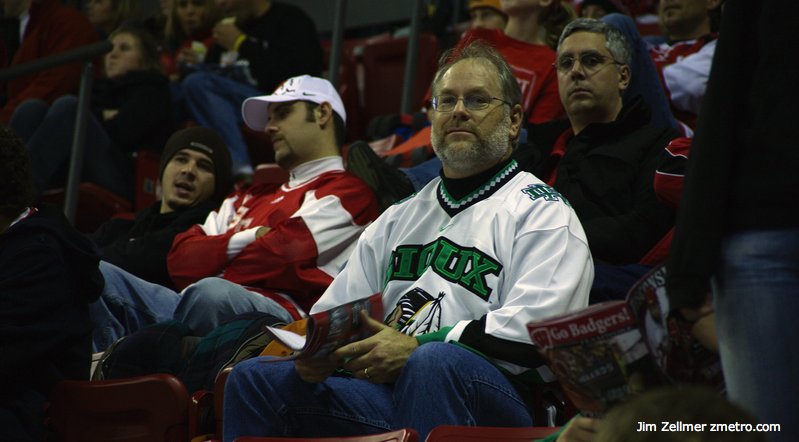
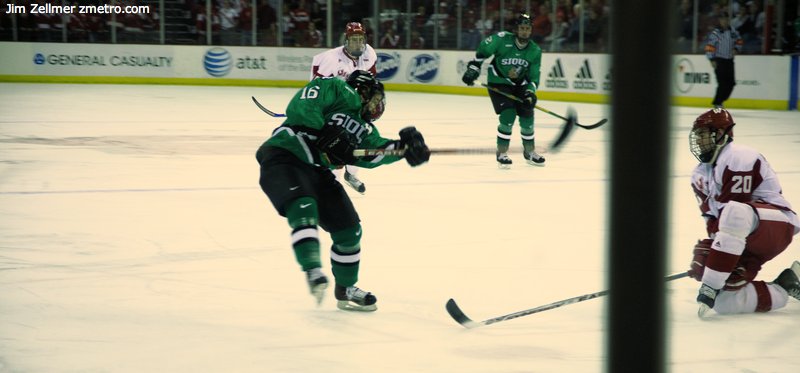
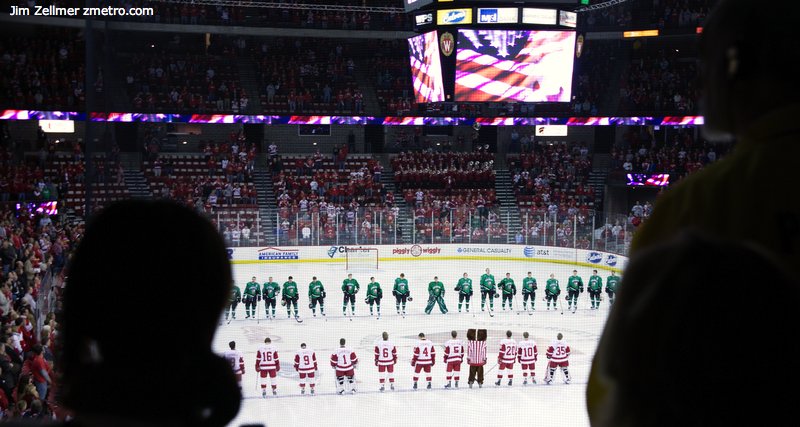 Details of the Badgers 4-0 win available here. North Dakota had an amazing 43 shots on goal, including 25 in the third period. A tremendous, fast paced game. One of the best I’ve seen.
Details of the Badgers 4-0 win available here. North Dakota had an amazing 43 shots on goal, including 25 in the third period. A tremendous, fast paced game. One of the best I’ve seen.
Moonrise over Camp Randall: Wisconsin Badgers 17, Iowa Hawkeyes 13
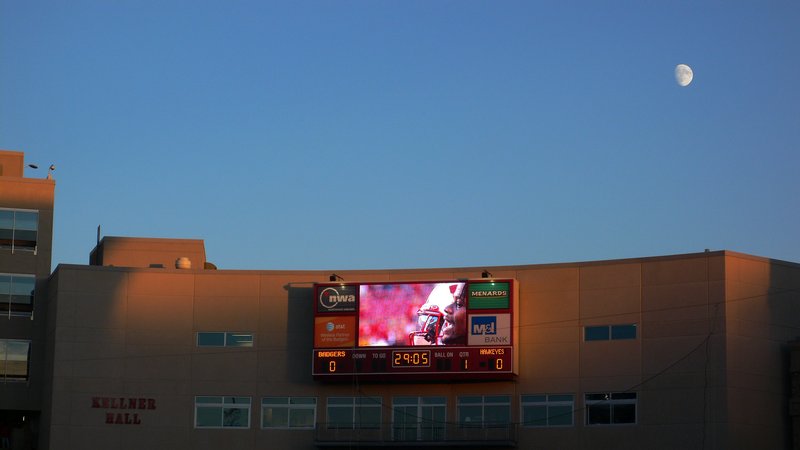
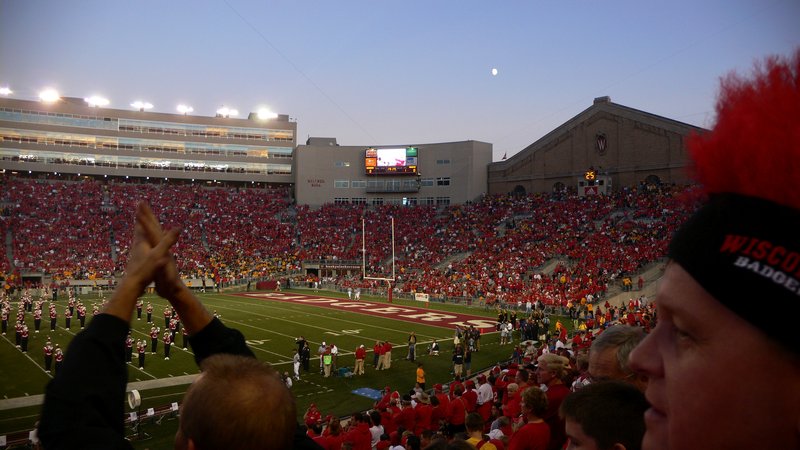
An Evening with the Green Bay Packers and Jacksonville Jaguars at Lambeau Field
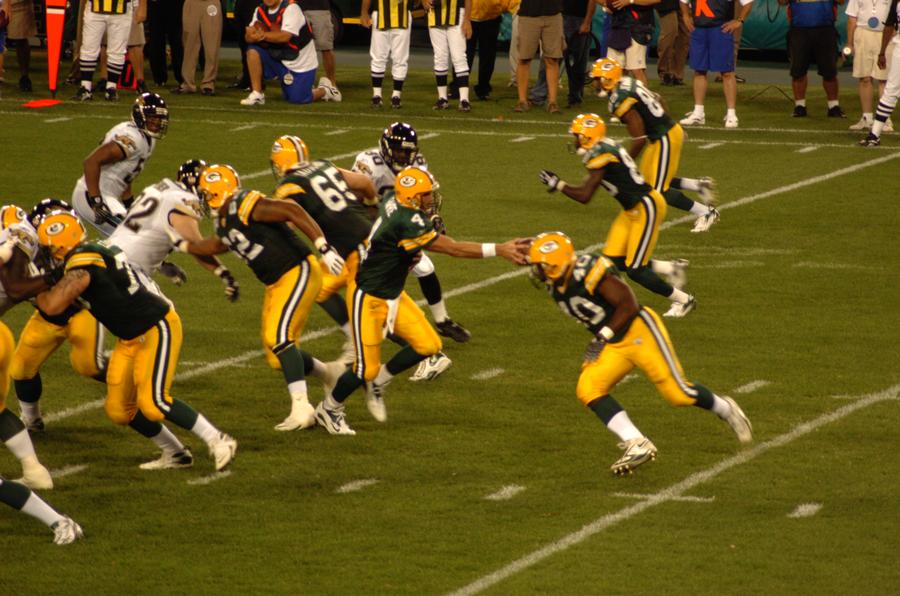
A few observations after my first Packer game in 24 years:
- Lambeau Field, like all modern sports facilities is designed to extract the maximum amount of cash from visitors. $8.50 burgers and $5.50 pizza slices.
- Bottled water ($3) is delivered with the caps removed because “people are throwing them on the field”.
- The game was fun to watch, despite the outcome.
- People watching was nearly as interesting as the game.
Many photos, here.
All City Swim 2007 Photos
Declining Demand for Luxury Sports Suites?
It was like watching an era of sports history being erased. In early December, construction workers sawed through the multiple layers of drywall and metal studs separating a row of skyboxes at the Seattle Mariners’ Safeco Field. They tore up the suites’ beech-hardwood floors and carted away their oriental rugs and leather furniture. By the end of the week, the eight skyboxes were gone.
In a reversal that strikes at a cornerstone of pro-sports finances — and of the way corporate America entertains — teams around the country are ripping out luxury suites. These perches have been used to justify billions of dollars in stadium construction over the past two decades. But in many cities, they are losing luster with surprising speed, partly the result of factors that couldn’t have predicted five or 10 years ago, from changes in tax laws to scandal-driven reforms on corporate entertaining.
“At GM, you can’t even buy them a cup of coffee anymore,” says Lin Cummins, the marketing chief at automotive supplier Arvin Meritor in Troy, Mich, which has let the leases expire for its suites in four different sports.
Cheeseheads’ Taste of Chester
Frank Fitzpatrick pens a Philly view of UW basketball coach Bo Ryan (Ryan is from Philadelphia):
Ryan peddled the cards until he got the camera. Forty-nine years later, the big picture hasn’t changed much. He’s still fighting and selling relentlessly.
“You’ve got to sell,” he said, “because a lot of times you’re a perfect stranger trying to convince somebody to do something they might not want to do. If I wasn’t a coach, I’d probably be a salesman. I’ve got to have that competition.”
Now Ryan sells Badger basketball – to recruits, to his players, to boosters, to the media, to the nation. With that slick exterior abetted by street smarts, he has transformed Wisconsin, once an off-the-rack program, into one of the hottest items on college basketball’s shelf.
